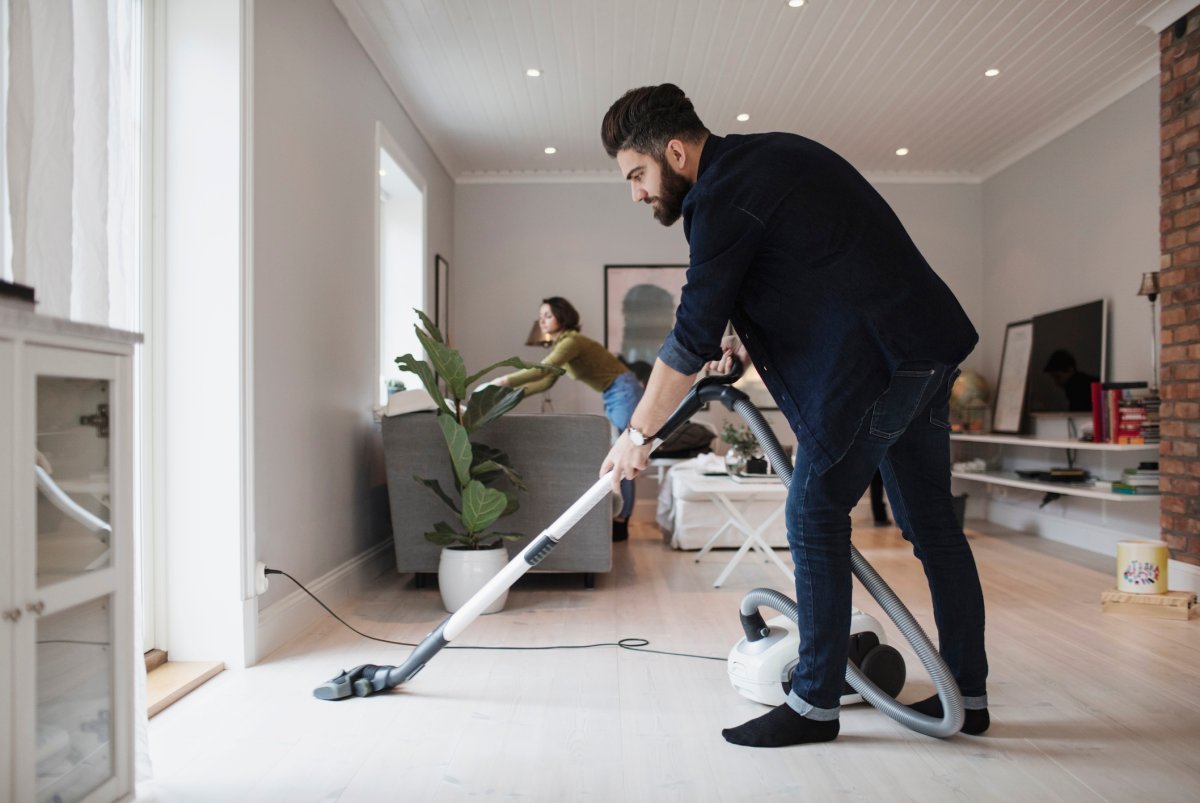Turns out vigorous vacuuming can go a long way for your health.

According to a recent study published in The Lancet, 2.5 hours of physical activity per week — and researchers say this can include any type of activity — can reduce the risk of death by 28 per cent. The study notes your risk of heart disease also can drop by 20 per cent.
“Being physically active doesn’t have to be complicated,” says Vancouver-based study author Dr. Scott Lear. “Going to the gym, going for a run or going swimming are all fantastic, but that doesn’t need to be the only way you get activity.”
READ MORE: Forget crossword puzzles, here are other ways to exercise the brain
Lear and his team looked at more than 130,000 people in 17 countries with different income levels. For some countries, he adds, being active was part of their day-to-day job and recreational activity (going to the gym, for example) wasn’t an option.
Countries in the study included Canada, Sweden, United Arab Emirates, Argentina, Brazil, Chile, Poland, Turkey, Malaysia, South Africa, China, Colombia, Iran, Bangladesh, India, Pakistan, and Zimbabwe.

Authors noted both recreational and non-recreational physical activity were associated with benefits, and the more activity you did, the lower your risk of heart disease and death were overall.
“Previous studies are focused on high-income countries and jobs where you sit all day. We have to go out in our free time to be active,” he says.
The generation that sits
And while there are many jobs in Canada that require being active on the job, Lear notes the majority of people are still sedentary.
About 100 years ago, he adds, people didn’t have to go to gyms to stay active or fit, and with a generation that sits, it’s even more important to look at how active you are before work, during work and commuting home.
“When we go into a building, we are so conditioned to use the elevator,” he said. “Take the stairs. If you take transit to work, walk to a further stop or get off a stop early. Even getting up every 30 minutes and walking around the office for two minutes is better than sitting continuously.”
Personal trainer Amanda Thebe of Fit & Chips of Toronto, say with any form of exercise, you want to look at the all-around benefits.
READ MORE: How to get abs without doing traditional ab exercises
The case for chores as exercise
And with a focus on household chores, keep in mind how much it actually works you out, Thebe says.
“You aren’t going to get very fit by simply pressing a button on the washing machine, but any housework that you do which requires lots of movement in every direction will get your heart pumping and count as aerobic activity.”
She adds unless you are doing two to three hours of housework every day, you shouldn’t be relying on it as your only activity.
READ MORE: 8 exercises personal trainers do on the daily
But Lear says that’s not the underlying message of the study. “It would be great if people started vacuuming more, but that’s not what the message is saying,” he says. “Any activity counts and things like cutting the grass or raking the leaves are all activities.”
The other thing to note is the amount of time people should spend exercising is different for every body type. Previous studies have found those who spent up to 30 per cent of their week doing vigorous activities were nine per cent less likely to die prematurely, The New York Times reports.
“Exercise, like medicine, does not come with a prescribed magic dose and finding your sweet spot is going to be an individual journey,” Thebe says. “What all the studies do confirm though, is movement daily is going to provide you with numerous benefits, so whether that is doing the housework, taking a long stroll or going for a walk, you decide your own dosage.”




Comments